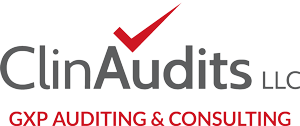 Quality Risk Management
Quality Risk Management
Quality Risk Management for Regulatory Compliance
Quality Risk Management (QRM) is an innovative approach whereby an organization proactively and purposefully detects, identifies, and then resolves risks before they become real problems. Traditional auditing techniques using a systems approach are then projected toward implementing improved standards. ClinAudits collaborates closely with clinical research, medical affairs and safety personnel. Working with business partners and regulators, we have created an environment that promotes risk awareness and elevates risk mitigation. Our focus remains on customer needs aimed to improve overall compliance. This targeted approach ensures confidence of data leading to safe and efficient delivery of medicines to patients.
Achievement Highlights:
- Development of quality risk management and mitigation models
- Tools and information management systems utilizing Six Sigma techniques
- Process optimization (Operational Excellence & LEAN techniques)
- Elevated quality management efficiency
- Process auditing approaches through sound risk-based strategies
Core Objective of QRM
ClinAudits has a proven track record of transforming traditional quality assurance and quality control methods into prospective concepts using a risk-based approach to quality management. Our goal is to foster a culture of proactive risk management, transparency and continuous process improvements within the firm. This is accomplished through creation of new governance and control standards, development of risk management tools, policies, procedures, and thorough understanding of pharmaceutical R&D regulations, along with exceptional communication and business support.
- Transform traditional quality assurance philosophy by applying operational excellence and LEAN 6 Sigma techniques, resulting in a risk-based approach to quality management.
- Champion innovative QRM systems, analytical tools, and QC/QA governance model that are the driving force to detect, prioritize, manage, and resolve risks in high risk areas.
- Spearhead internal process optimization initiatives by identifying best practices and methods to support a process audit approach within Quality Assurance.
- Assess and diagnose all risk and compliance issues early on thus ensuring timely implementation of corrective and preventive actions.
- Work with a wide range of clientele handling difficult customer problems in a courteous, positive, knowledgeable, and professional manner.
- Coach, motivate, and develop a winning quality management staff and other quality area teams through effective team building and communication (with the intent of improving work performance and commitment to excellence).
Capabilities / Scope of QRM
Quality Risk Management in GCP and Pharmacovigilance objectives focus on patient safety and data integrity. These objectives lead to SOP and regulatory compliance, consistency and transparency. ClinAudits provides expert consulting support in all of these areas. Risks in each area are assessed proactively and on continuous basis.
- QRM Risk Entities – Proactive Risk Assessments
- Study/Protocol: Assesses risk at study set-up, prior to protocol approval and site initiation.
- Trial Sites: Assesses key risk indicators and critical quality metrics, including data at investigational sites.
- Data Management: Assesses good clinical practice data quality on a study level.
- Science Review: Assesses risk on a scientific and medical level with focus on study data quality and completeness, including efficacy and safety results.
- Affiliate/Centers of Excellence: Assesses study management risks at the operational levels within a global organization.
- Service Providers/CROs: Assesses risk at service providers and CROs in support of all operational areas, including systems and processes involved in study development, study management and safety reporting.
- Pharmacovigilance (Drug Safety) including Safety Operating Centers: Assesses pharmacovigilance (including post marketing surveillance) and clinical trial safety reporting through established key risk indicators required by regulation.
- The objective of QRM is to ensure safety of patients and data integrity.



